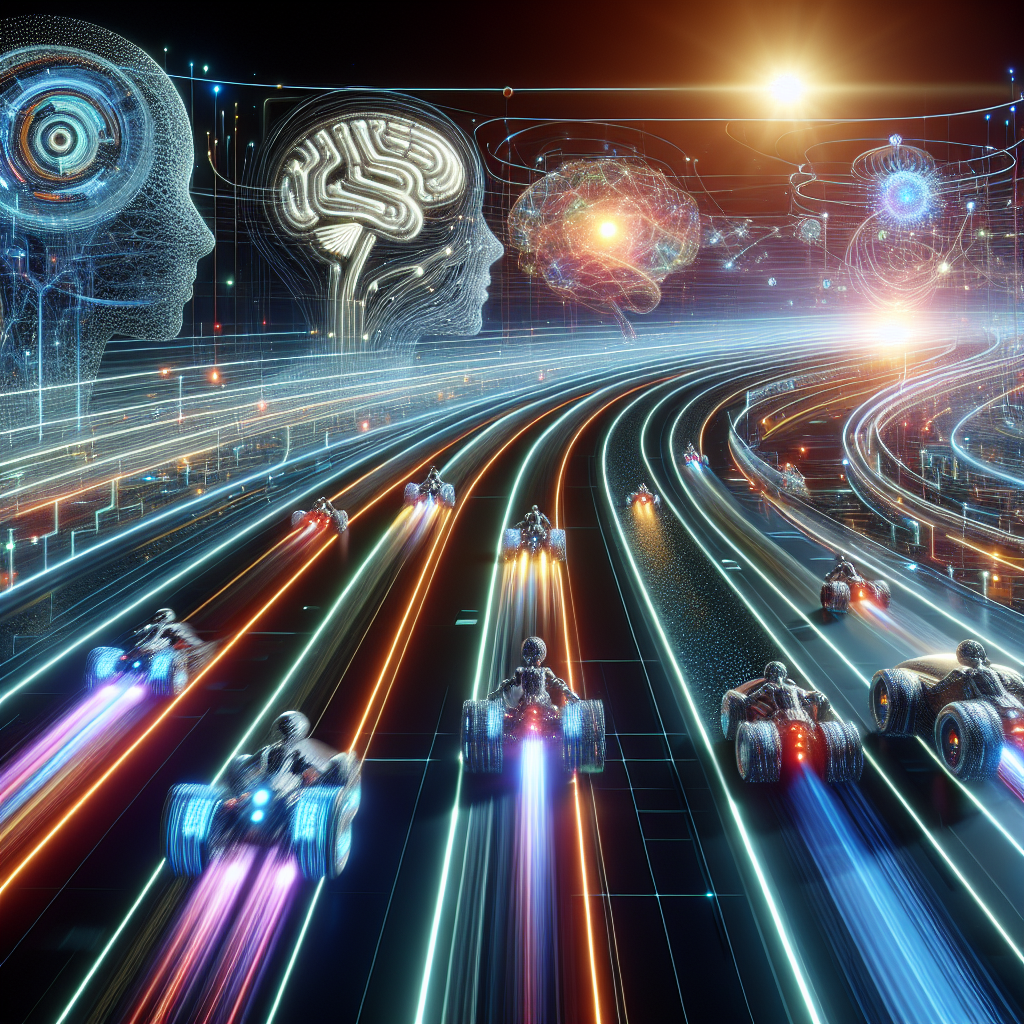The Race to Develop AGI: Who’s Leading the Charge?
Artificial General Intelligence (AGI) is the next frontier in the field of artificial intelligence. AGI refers to a machine that has the ability to perform any intellectual task that a human can do. This includes tasks such as reasoning, problem solving, learning, and understanding natural language. While current AI systems are limited to performing specific tasks, AGI has the potential to revolutionize industries and society as a whole.
Many companies and research institutions around the world are racing to develop AGI. The competition is fierce, with each player vying to be the first to create a truly intelligent machine. But who is leading the charge in this race to develop AGI? In this article, we will explore some of the key players in the field of AGI research and development.
Leading Players in the Race to Develop AGI
1. OpenAI
OpenAI is a research organization dedicated to developing artificial intelligence in a way that benefits humanity. Founded in 2015, OpenAI has made significant contributions to the field of AI, including developing language models like GPT-3 and creating reinforcement learning algorithms that have achieved superhuman performance in games like Dota 2.
OpenAI has a team of world-class researchers and engineers who are working on developing AGI. The organization’s mission is to ensure that AGI is developed in a safe and beneficial way, with a focus on transparency and collaboration. OpenAI has also released a number of tools and resources to help advance the field of AI, including the OpenAI Gym, a platform for developing and comparing reinforcement learning algorithms.
2. DeepMind
DeepMind is a research company that was acquired by Google in 2014. Since then, DeepMind has made several breakthroughs in the field of artificial intelligence, including developing AlphaGo, a program that defeated the world champion in the game of Go, and AlphaZero, a program that achieved superhuman performance in chess and other games.
DeepMind’s research is focused on developing AGI and understanding the principles of intelligence. The company has a team of experts in machine learning, neuroscience, and other fields who are working on developing algorithms that can learn and adapt to new tasks and environments. DeepMind is also known for its work in reinforcement learning, a technique that allows machines to learn from their own experiences.
3. Microsoft
Microsoft is another major player in the race to develop AGI. The company has invested heavily in AI research and development, with a focus on developing intelligent systems that can understand and interact with the world in a natural way. Microsoft’s research is centered around areas such as natural language processing, computer vision, and machine learning.
Microsoft has also made significant contributions to the field of AI through its Azure AI platform, which provides tools and services for developing AI applications. The company has partnered with leading research institutions and universities to advance the field of AI, and it is committed to developing AI in a responsible and ethical way.
4. IBM
IBM has a long history of research and development in the field of artificial intelligence. The company’s Watson system, which famously defeated human champions on the quiz show Jeopardy!, is an example of IBM’s prowess in developing intelligent systems. IBM has also made significant contributions to the field of AI through its research in areas such as natural language processing, machine learning, and computer vision.
IBM is currently working on developing AGI through its IBM Research division. The company’s research is focused on developing algorithms that can reason, learn, and interact with the world in a human-like way. IBM is also a leader in the field of quantum computing, which has the potential to revolutionize the field of AI by enabling machines to perform calculations at speeds that are currently impossible with classical computers.
FAQs
Q: What is the difference between AGI and narrow AI?
A: Narrow AI refers to AI systems that are designed to perform specific tasks, such as image recognition or natural language processing. AGI, on the other hand, refers to a machine that has the ability to perform any intellectual task that a human can do. AGI is more versatile and adaptable than narrow AI, and it has the potential to revolutionize industries and society as a whole.
Q: How close are we to developing AGI?
A: It is difficult to predict exactly when AGI will be developed, as it is a complex and challenging problem. Some experts believe that we could see AGI within the next few decades, while others believe that it is still many years away. The development of AGI will require significant advances in areas such as machine learning, natural language processing, and robotics.
Q: What are the potential benefits of AGI?
A: AGI has the potential to revolutionize industries such as healthcare, finance, and transportation. It could also help us address some of the world’s most pressing challenges, such as climate change and poverty. AGI could enable us to develop new technologies and solutions that are currently beyond our reach.
Q: What are the potential risks of AGI?
A: AGI also poses significant risks, including the potential for job displacement, ethical concerns, and the possibility of unintended consequences. AGI could also pose a threat to humanity if it is not developed in a safe and beneficial way. It is important for researchers and policymakers to consider these risks and work to ensure that AGI is developed in a responsible and ethical manner.
In conclusion, the race to develop AGI is well underway, with companies and research institutions around the world vying to be the first to create a truly intelligent machine. While the development of AGI poses significant challenges and risks, it also holds the potential to revolutionize industries and society as a whole. It will be fascinating to see who ultimately leads the charge in this race to develop AGI and what the future holds for artificial intelligence.

